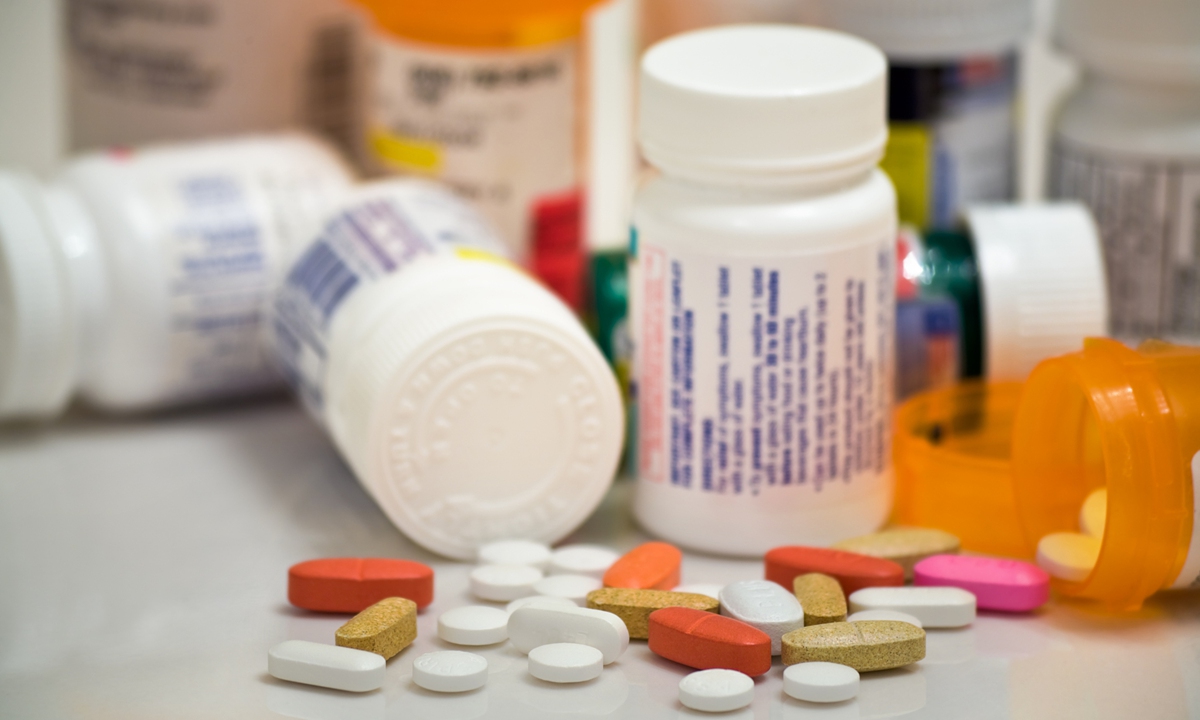Higher antibiotic doses may make bacteria 'fitter': study
Higher antibiotic doses may make bacteria ‘fitter’: study
Using higher doses of antibiotics in a bid to tackle the growing problem of drug resistance may end up strengthening certain bacteria, according to research released on Wednesday that highlights a previously unthought-of risk.

Previous research has shown that inflicting higher antibiotic doses on bacteria can slow its ability to develop resistance, yet little attention has been paid to how those higher doses impact the overall health of microbes.
A team of Britain- and Europe-based researchers found that while higher antibiotic doses slowed the rate at which the bacteria developed resistance, they also gave rise to bacteria with "higher overall fitness" - meaning it had a higher rate of reproduction.
"We consider growth rate as a proxy for fitness, under the assumption that a strain that grows faster is more likely to take over the population and become dominant," lead author Mato Lagator, from the University of Manchester's School of Biological Sciences, told AFP.
The team behind the research said it showed how higher antibiotic doses presented a "dilemma" and could result in ultimately more-resistant bacteria. "Considering the fitness of the evolved strains adds another dimension to the problem of optimal antibiotic dosing," they wrote.
"New drugs are typically developed with one dominant focus - how well they get rid of the infection," said Lagator.
"What is rarely considered is the likelihood of target bacteria evolving resistance to those drugs, as well as the fitness of the resistant strains that are likely to emerge."

Antibiotic Illustration: VCG
Antimicrobial resistance has been labeled by the United Nations as "one of the greatest threats we face as a global community" and is predicted to cause 10 million deaths annually by 2050.Previous research has shown that inflicting higher antibiotic doses on bacteria can slow its ability to develop resistance, yet little attention has been paid to how those higher doses impact the overall health of microbes.
A team of Britain- and Europe-based researchers found that while higher antibiotic doses slowed the rate at which the bacteria developed resistance, they also gave rise to bacteria with "higher overall fitness" - meaning it had a higher rate of reproduction.
"We consider growth rate as a proxy for fitness, under the assumption that a strain that grows faster is more likely to take over the population and become dominant," lead author Mato Lagator, from the University of Manchester's School of Biological Sciences, told AFP.
The team behind the research said it showed how higher antibiotic doses presented a "dilemma" and could result in ultimately more-resistant bacteria. "Considering the fitness of the evolved strains adds another dimension to the problem of optimal antibiotic dosing," they wrote.
"New drugs are typically developed with one dominant focus - how well they get rid of the infection," said Lagator.
"What is rarely considered is the likelihood of target bacteria evolving resistance to those drugs, as well as the fitness of the resistant strains that are likely to emerge."
